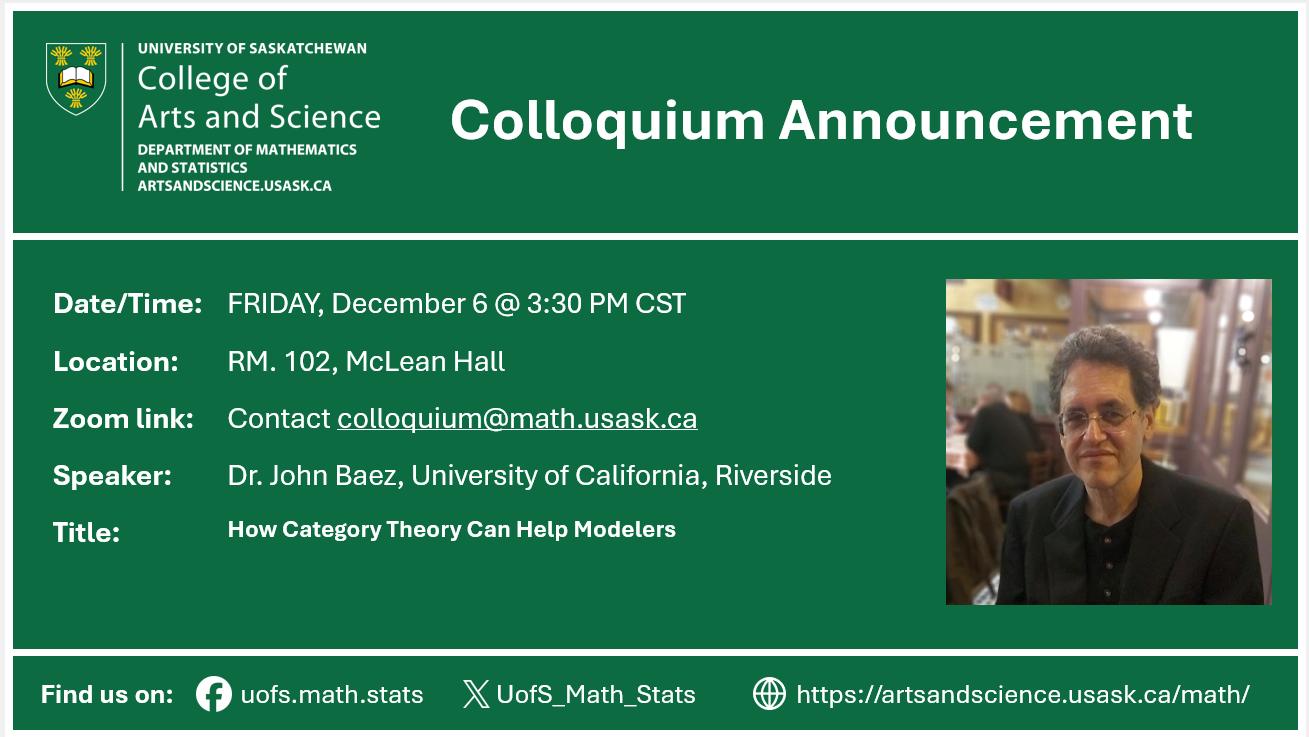
Department of Mathematics & Statistics Colloquium
The Colloquium Committee cordially invites you to attend the next talk in the 2024-25 Math & Stats Colloquium series.
Date/Time: Friday, December 6 @ 3:30 PM CST
Location: Online
Zoom link: email colloquium@math.usask.ca
Speaker: Dr. John Baez, University of California, Riverside
Title: How Category Theory Can Help Modelers
Abstract: Mathematical models of human interactions are important and widely used in epidemiology and many other fields, but building and working with these models at scale is challenging. I will explain two software tools for doing this, both based on category theory. Modelers often regard diagrams as an informal step toward a mathematically rigorous formulation of a model. Giving these diagrams a precise syntax using category theory has many advantages, but I will focus on those connected to "community based modeling": the process of working with diverse community members to build a model. This is joint work with Nathaniel Osgood, Xiaoyan Li and other collaborators.
The Colloquium Committee gratefully acknowledges that our colloquium series is supported in part by the Pacific Institute for the Mathematical Sciences (PIMS). If you will attend this colloquium talk, please take two minutes to fill out this short online demographics survey: https://pims.math.ca/demographic-survey. When prompted, please select “University of Saskatchewan” as the location where the event takes place and “USask Math & Stats Colloquium” as the activity. Colloquium participants only need to complete this survey once for the entire colloquium season. The information collected is used by PIMS to evaluate the reach of their programs and to guide future funding and developments. The disclosures are voluntary and will be kept confidential.
Please contact colloquium@math.usask.ca if you have any questions about this event. We hope to see you all on Friday the 6th at 3:30 PM!

